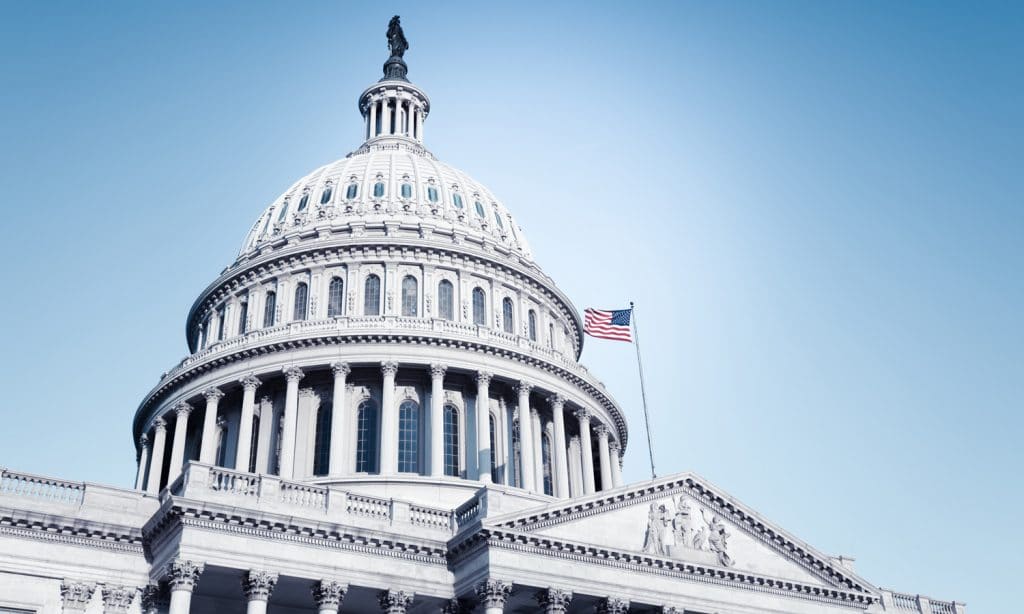Marijuana, and the tax revenue it provides, could be just the shot in the arm that this country needs for solid economic recovery in 2021 and beyond.
Cannabis is killing it these days, and Congress may want to take a harder look at what is going on as they continue bickering over the $3 trillion stimulus bill, aka the Health and Economic Recovery Omnibus Emergency Solutions Act (HEROES Act).
If Congress is still scrambling around looking for sources of revenue to fund the bill, cannabis may just be the thing that does the trick. It’s getting harder and harder for federal and state legislators not to see the huge tax revenue coming from the sale of both medical and adult use cannabis.
Cannabis could play a role in shoring up any needed funds for the stimulus bill that would offer financial relief for all Americans during this pandemic, giving the cannabis industry not only a mainstream moment as a shining light in this time of darkness, but bringing into sharp focus how important this new and maturing industry is to every American.
Cannabis is already represented inside the stimulus package with the inclusion of the Secure and Fair Enforcement Banking Act of 2019 (SAFE Act), that allows cannabis companies to use banking services like any other business, and is the single most popular bill yet about cannabis.
In an historic move, that bill cleared the House September 25, 2019 (it is now sitting in the Senate).
With the inclusion of SAFE Act bill in the stimulus package, Democrats are demonstrating how the need for cannabis as a properly functioning enterprise has asserted its presence and importance to the economy. If the bill passes, cannabusinesses can get insurance coverage, small business loans, and bank accounts without the huge fees they have to pay now — typically $5,000-$10,000 a month.
RELATED: Pennsylvania Gov. Demands State Legalize Marijuana To Boost Economy
In other words, they can hit the earnings jets and begin making even more money faster, generating more state tax revenue quicker.
As expected, Republicans are pushing hard against that bill inclusion, with most still holding on to old-school, uniformed thinking about cannabis. Congressman Kevin McCarthy (R-CA) called Speaker Nancy Pelosi’s defense of the inclusion of the SAFE Act bill in the stimulus package “incredibly irresponsible.” “Hey Nancy, let’s focus on the pandemic, not pot,” McCarthy tweeted.

Senate Majority Leader Mitch McConnell (R-KY) was a little more heavy handed. Commenting on the latest delay of the bill on September 30th, he called the inclusion of the SAFE Act bill one of the “non-COVID related poison pills.”
“But the House did find room to provide special treatment to the marijuana industry,” he wrote as a series of quotes within a press release. “Their bill mentions the word ‘cannabis’ more times than the words ‘job’ or ‘jobs.’”
Perhaps the esteemed Republican senator is unaware of what is really going on.
The cannabis industry is on track to support 300,000 workers by the end of 2020 even as some industry businesses are forced to shut down, according to industry sources reporting to the National Organization for the Reform of Marijuana Laws (NORML).
RELATED: House Speaker Admits Marijuana Could Save Texas Economy, But Won’t Pursue It
The Center for American Progress reported that a legalized cannabis industry was just the ticket for creating millions of new jobs with marijuana-related revenue.
Look at what’s already been happening.
Oregon has been racking up over $2 million in state taxes every month since February, 2016 — state and local tax revenue for Oregon for 2020 has been consistently over $10 million, with July alone coming in at $17.5 million.
RELATED: GOP Voters Support Weed Decriminalization More Than Democratic Lawmakers
Washington state marijuana tax revenues were $172 million more than retail liquor stores tax revenue in 2019, at $395.5 million, up from $28 million from 2018.
And Colorado is having a banner year — $100 million in sales alone in July, 2020, now with over $1.4 billion in tax revenue since 2014 on nearly $9 billion in sales during the same period.
Meanwhile, other states that are getting tax revenue from marijuana sales are getting beat up by COVID.
Take Massachusetts, for example, which began selling legal adult use marijuana in November, 2018. Total retail cannabis sales have risen to just over $785 million, with $122 million in tax revenue. September is a significant month for revenue collection in Massachusetts because both individual and business taxpayers have estimated payments due. September generally produces about 10% of annual revenue, making September the third or fourth largest revenue month of the year.

Total tax collections this September were down $169 million, due in large part to COVID. Imagine what it would have been like without cannabis retail tax revenue? Surely lawmakers have taken notice of how cannabis can fix tax revenue shortages like no other retail business.
After November 3, the earnings outlook for cannabis could be much different, as five states consider legalization, including Arizona (adult use), Mississippi (medical), Montana (adult use), New Jersey (adult use), and South Dakota. South Dakota is considering legalizing both medical and adult use, which is the first time this has happened in the run to legalize cannabis anywhere in the U.S., and will likely pique the interest of the average investor because it demonstrates another way to get the job done that state legislatures are OK with.
RELATED: Where The Presidential Candidates Stand On Marijuana Legalization
If and when New York jumps into the game, that would pretty much start the legalization ball rolling down the hill for the entire country and seal the deal.
Governor Andrew Cuomo proposed legalizing recreational cannabis in New York as part of his 2021 budget forecast, with tax revenue predicted to be around $300 million a year or more.
With New York in the game, that would mean that most of the high population states—New Jersey, New York, California — would all have legalized adult use, all collecting millions in tax revenue..
In short, as the stimulus package stalls again and again, legalizing of both medical and recreational cannabis in every state is looking more and more like a slam dunk starting by the end of this year.
These new states will be bringing billions of earnings into state coffers, millions more in state revenue, and thousands if not millions of new jobs. A SAFE Act jump start is just the beginning.

In the meantime, another bill now in Congress, the Marijuana Opportunity Reinvestment and Expungement Act of 2019 (the MORE Act), offers an even faster and more comprehensive path to legalization and revenue generation.
It would take cannabis off the Controlled Substances listing, which is an historic feat and the first cannabis bill introduced in the Senate to do that.
Even though it was introduced by Vice Presidential candidate Kamala Harris, it is expected to stall in the Senate, awaiting more deliberation after the election, and a hoped-for Democratic majority in the House and Senate. “The MORE Act by the Democratic-controlled House could be the impetus necessary for the Biden campaign to revisit its existing stance and move in a direction that provides for federally descheduling marijuana — a position already held by Vice Presidential candidate Kamala Harris,” Paul Armentano, deputy director of NORML, wrote in a statement on the organization’s website.
In short, legalizing both medical and recreational cannabis in every state is looking more and more like a slam dunk. These new states will be bringing billions of earnings into state coffers, and millions more in state revenue.
Cannabis, and the tax revenue it provides, could be just the shot in the arm that this country needs for solid economic recovery in 2021 and beyond.


